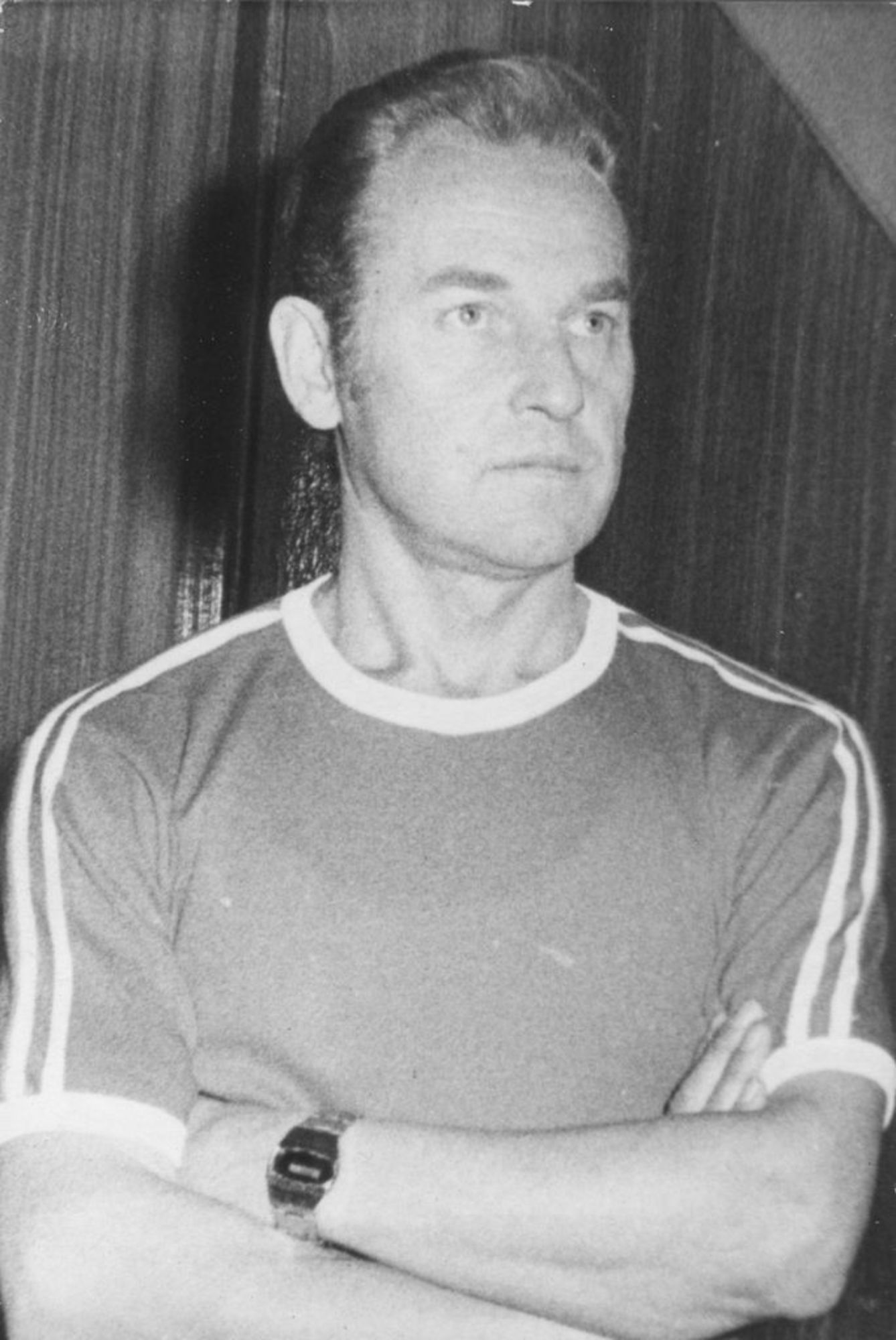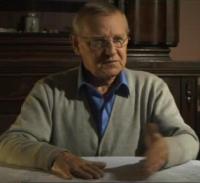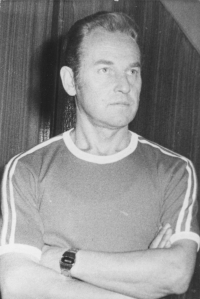"The end of the war, may, and we still don’t know anything. As I was saying, no knowledge of Polish language, no radio, no press. We thought that it can’t go on like that, that this has to change, but we were rather thinking about some kind of upheaval, that it will not remain under Polish administration, that the Germans would come back, that it would be like that. That’s how the time was passing.
In 1947, accidentally in Olsztyn cathedral, there was a parson, priest Hanowski, who was with the nuns, they were also supported by Caritas, that’s why since the end of the war they had been making soup for the remaining German people. That’s where one was going for dinner, and even bringing more of this soup home. As kids all of us were going there to eat. In 1947 my father wrote to us, but to the address where we had lived, so he must had been getting the mail returned, but in the end he wrote to the cathedral, to priest Hanowski. That letter reached us, but it was already 1947, the post office was working, everything was functioning differently. He could not reach us under the old address, we had moved to another apartment.
Independently, along the way, in March 1945, we had to leave the apartment. All the Germans had to leave their homes and go to the other side of Łyna. There’s the river Łyna flowing through Olsztyn. There were soviet troops coming from the headquarters and the said that we have to leave everything and go beyond Łyna. My aunt lived in Kolonia Mazurska, my mother’s sister, so we went with hand luggage to her. We came back from there in July, maybe early August. The father found us and came back. He didn’t have it easy, he didn’t know Polish. Before he got a hang of it, only then he could get a job. He was sick, so he wasn’t in the army, he had been wounded and they wouldn’t take him. He worked as a civilian in an ammo factory, he was making good money by the way. He got out to Denmark, got detained in Lubeka. He regretted a bit coming back, since it was hard for him. Older person, and the language… We were already talking, the mother said:”Listen, mathematics is the same in Polish as it is in German, latin alphabet is the same. You have to go to school, things are not changing here. You have to get educated”. Especially since I had studied in gothic alphabet, the latin one appeared only in 1939".


